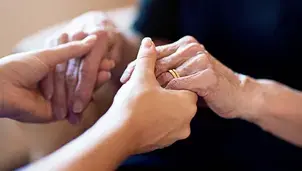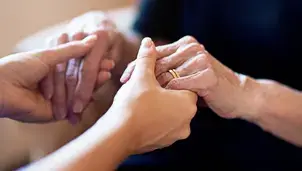There will come a time when you need to think about the last years, months, weeks, or days of life. Thinking and talking about the end of life can be difficult, so take your time reading this information.
This information is for people with a long-term lung condition who are coming to the end of their life. It’s also for those who are close to them, including carers, family, and friends.
If you have more questions or just want to chat, our friends at Marie Curie provide information and emotional support if you're living with or caring for someone who has a terminal illness. You can also call our helpline on 0300 222 5800.














